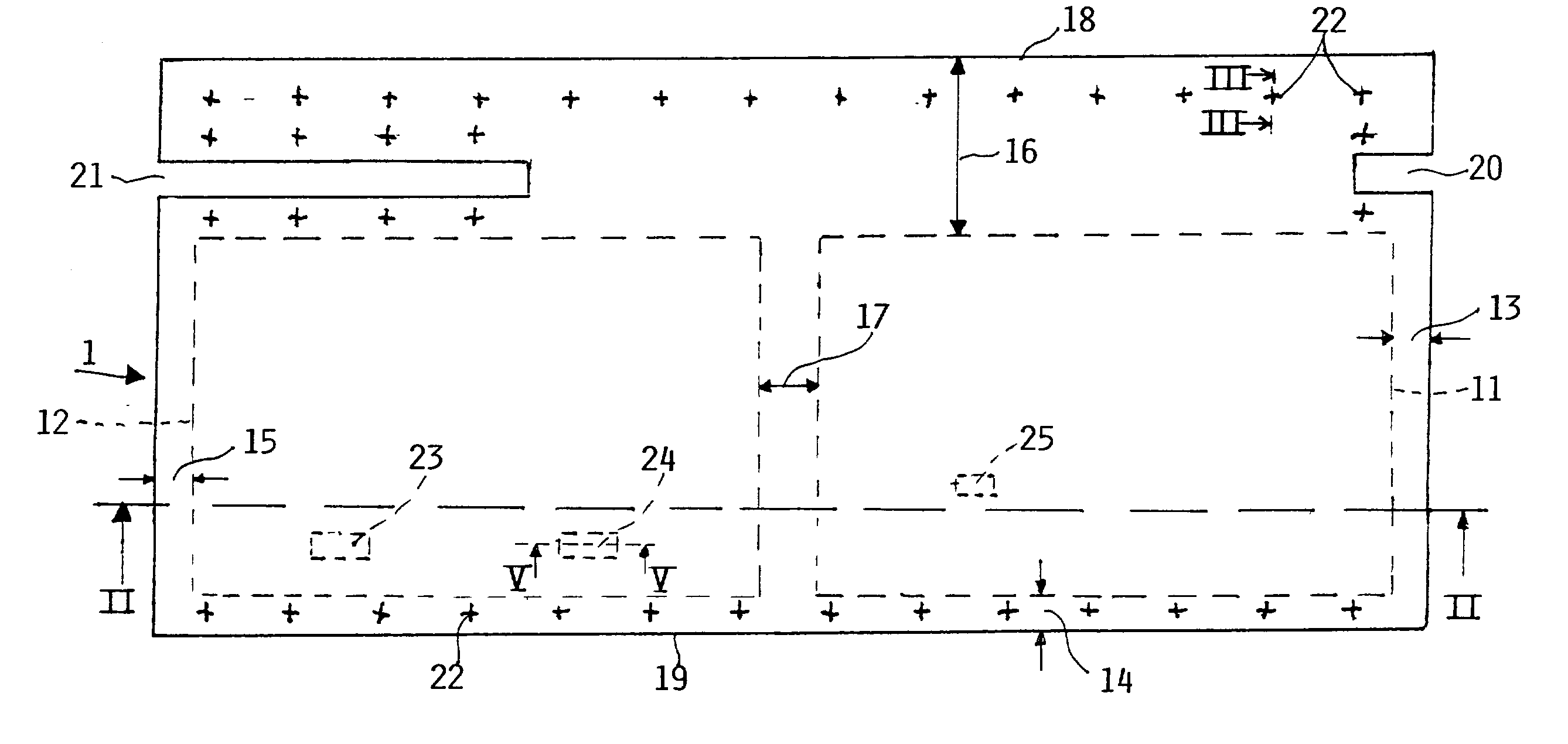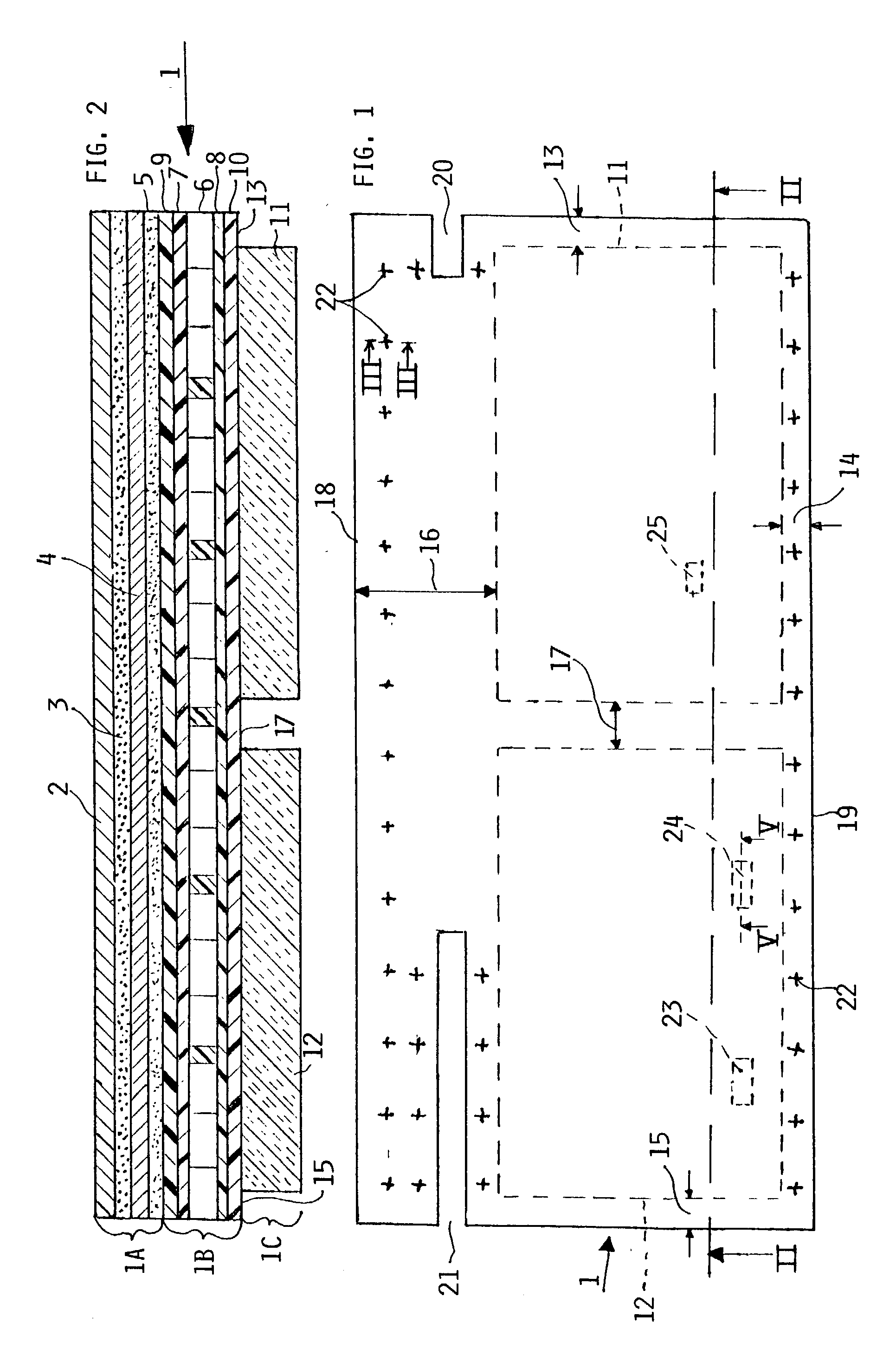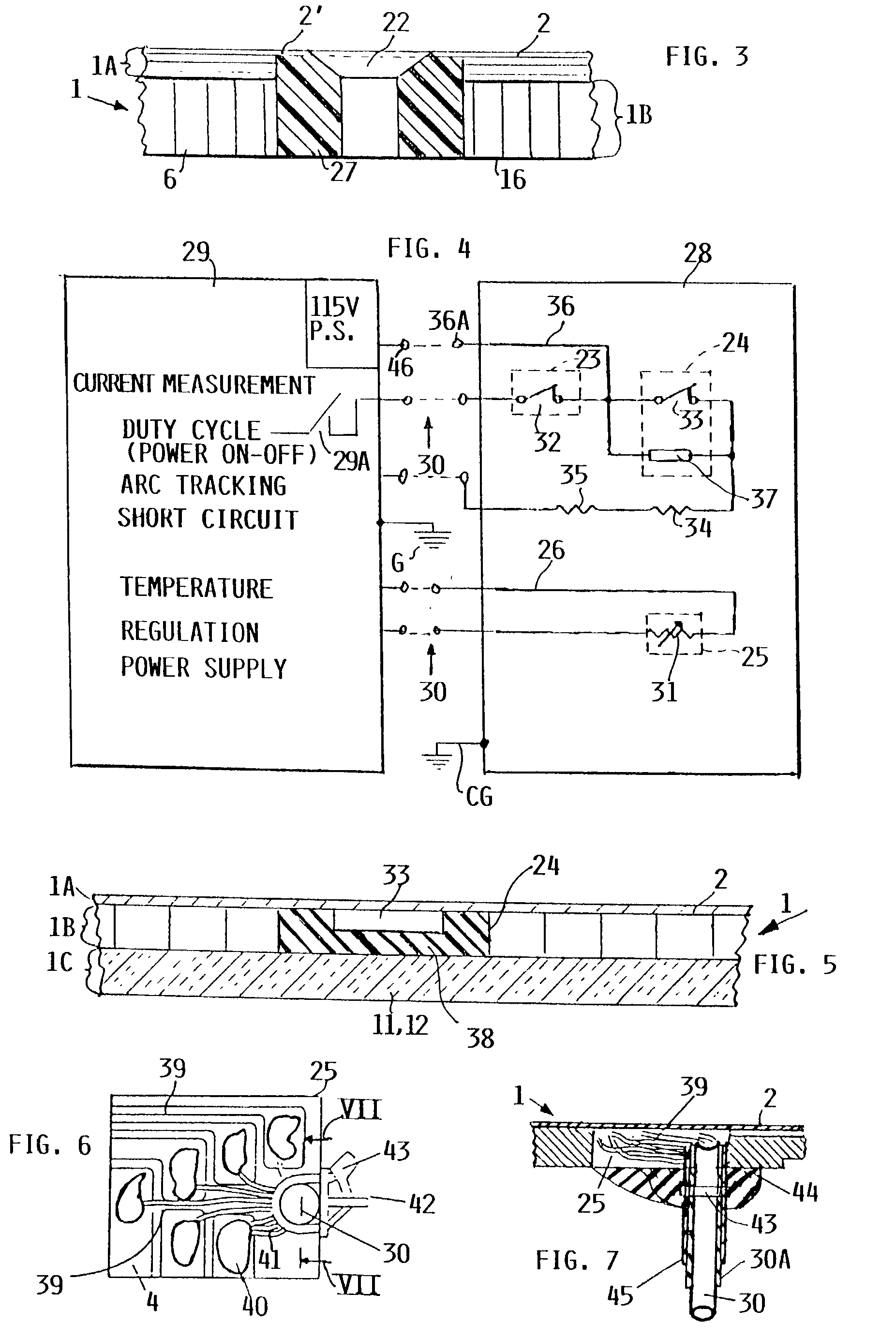Electrically heated aircraft composite floor panel
a composite floor panel and aircraft technology, applied in the direction of heating types, energy-efficient board measures, lighting and heating apparatus, etc., can solve the problems of fire safety problems, passive door protection measures, and the structure cannot meet the strength and safety requirements of the aircraft floor panel, so as to prevent overheating and prevent fire hazards
- Summary
- Abstract
- Description
- Claims
- Application Information
AI Technical Summary
Benefits of technology
Problems solved by technology
Method used
Image
Examples
Embodiment Construction
[0040] FIGS. 1 and 2 show an example of the present panel 1. FIG. 1 is a top plan view of an electrically heated aircraft composite floor panel 1 according to the invention. FIG. 2 shows in its sectional view along section line II-II in FIG. 1 the structural details of the present panel. The panel 1 has a heater and step on section 1A, a mechanical strength providing fiber composite core section 1B and a heat insulating section 1C with the core section 1B sandwiched between sections 1A and 1C. The heater and step-on section 1A of the panel 1 comprises a heat distribution metal plate 2 preferably of aluminum which covers the upper surface of the composite panel 1 and provides protection against mechanical stress. The metal plate 2 also assures an even heat distribution over the surface area of the panel 1. A relatively thin, approximately 0.5 mm thick, surface treated metal plate can serve for this heat distribution purpose. The plate 2 made of aluminum is capable of a rapid heat tra...
PUM
 Login to View More
Login to View More Abstract
Description
Claims
Application Information
 Login to View More
Login to View More - R&D
- Intellectual Property
- Life Sciences
- Materials
- Tech Scout
- Unparalleled Data Quality
- Higher Quality Content
- 60% Fewer Hallucinations
Browse by: Latest US Patents, China's latest patents, Technical Efficacy Thesaurus, Application Domain, Technology Topic, Popular Technical Reports.
© 2025 PatSnap. All rights reserved.Legal|Privacy policy|Modern Slavery Act Transparency Statement|Sitemap|About US| Contact US: help@patsnap.com



